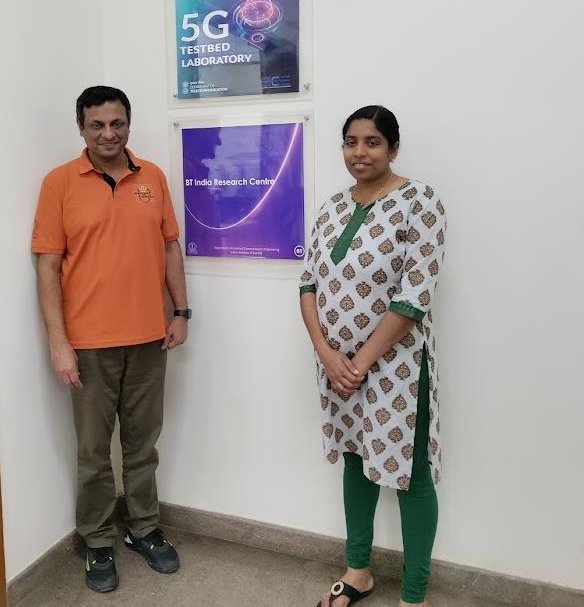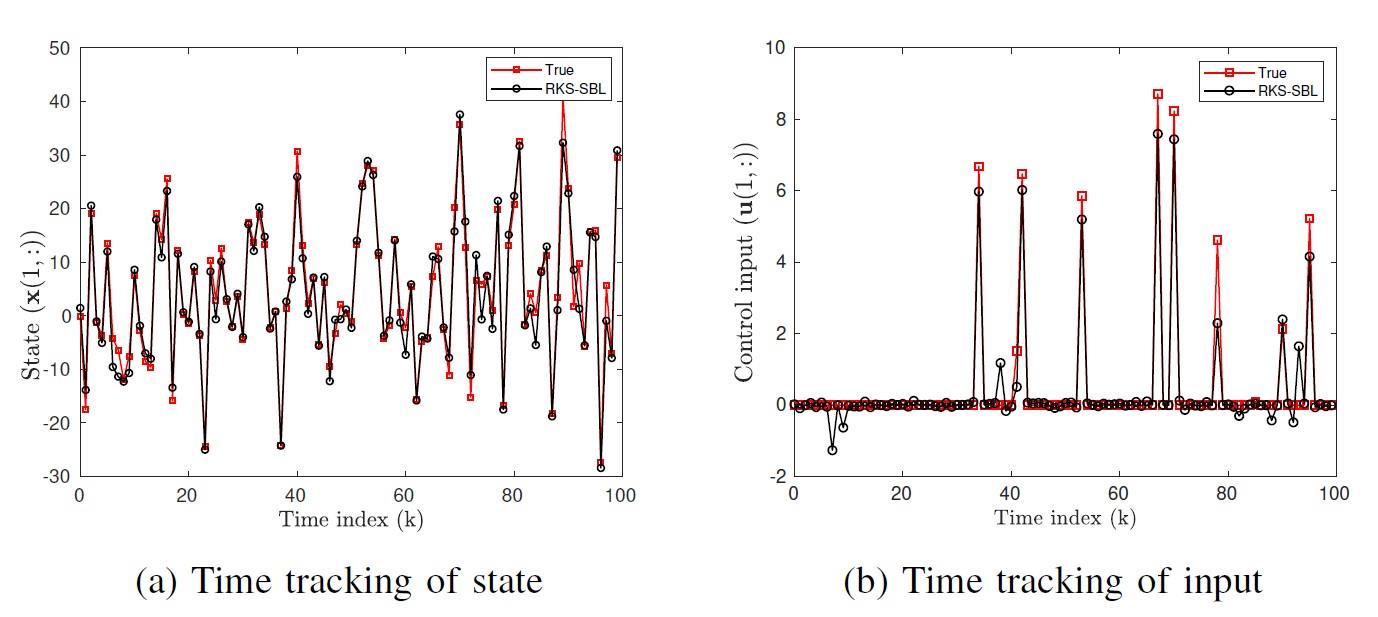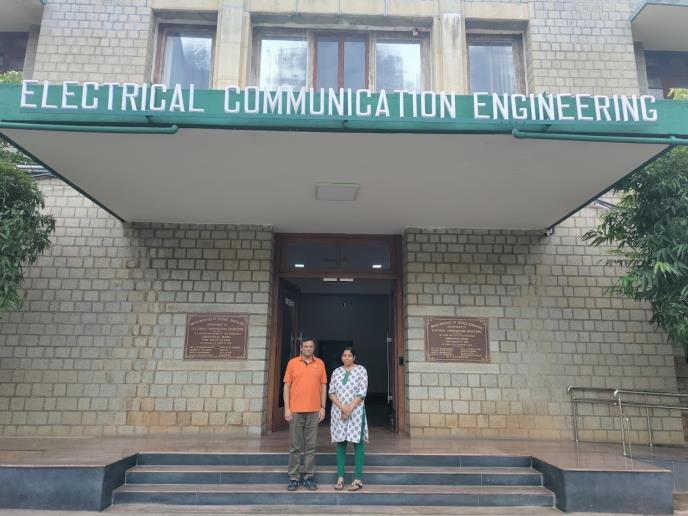Statistical Inference and Control Design for Sparsity-constrained Linear Dynamical Systems
Researchers from the Delft University of Technology (TU Delft) and the Indian Institute of Science Bangalore (IISc) have teamed up to work on a new research area called sparsity-constrained linear dynamical systems that lies at the intersection of signal processing, control theory, and networks. Professor Chandra R Murthy from the Department of Electrical Communication Engineering at IISc and Dr. Geethu Joseph from the Faculty of Electrical Engineering, Mathematics, and Computer Science jointly gave a tutorial introducing this new area at the European Control Conference in London, UK, in July 2022. Also, Dr. Joseph visited the Department of Electrical Communication Engineering at IISc to further advance the joint research with Prof. Murthy, his PhD student Kondapi V S Krishna Praveen, and masters students Rupam Kalyan Chakraborty and Chandrasekhar Sriram.
The goal of the research project is to probe deeper into the sparsity constraints in linear dynamical systems from theoretical and algorithmic standpoints. From the theoretical point of view, new characterizations and the fundamental limits of the systems concerning sparse states or inputs are investigated. These results shed light on what properties of the systems are critical in designing sparse control systems. Some of the areas of interest include the interplay of energy and sparsity constraints in dynamical systems, connections to the graph signal processing for sensor or social networks, and structural observability and controllability. On the algorithmic side, the project seeks to develop new efficient sparse recovery algorithms for the special signal structures like piecewise and nonnegative piecewise sparsity that arise in dynamical systems.
Fig. 1: Preliminary results showing that our algorithms can track the state and sparse control input of the system accurately (the red curves are the true values and the black curves indicate the estimated values)
The project exploits the expertise of both PIs and their students involved in the project to systematically develop new theories and algorithms for sparse control. Our preliminary results (see Figure 1) are submitted to the premier signal processing conference called the International Conference on Acoustics, Speech, and Signal Processing 2024. Beyond the fertile potential research outcome, the project also impacts the training of graduate students at IISc and TU Delft, who acquire sound foundations in statistical inference and control theory by working on the above research topics. There are two master’s students at IISc working on the project and at TU Delft, a small part of the project is used for a course project for EE4740 - Data Compression: Entropy and Sparsity Perspectives offered by Dr. Joseph.
The PIs jointly offered a tutorial introducing this topic to wider community at the European Control Conference in London, UK, in July 2022. The PIs are also jointly writing a book on the topic of sparse control to popularize this work and raise the visibility of the new research area. Apart from the regular weekly online meetings, Dr. Joseph had a short visit to Dr. Murthy’s group in July 2023 (Figure 2). The exchange visits help connect and build relationships with the other members of the respective organizations and have more in-depth discussions on the high-level project plans. The discussion of small details, feedback, and project review happens via regular virtual meetings.


